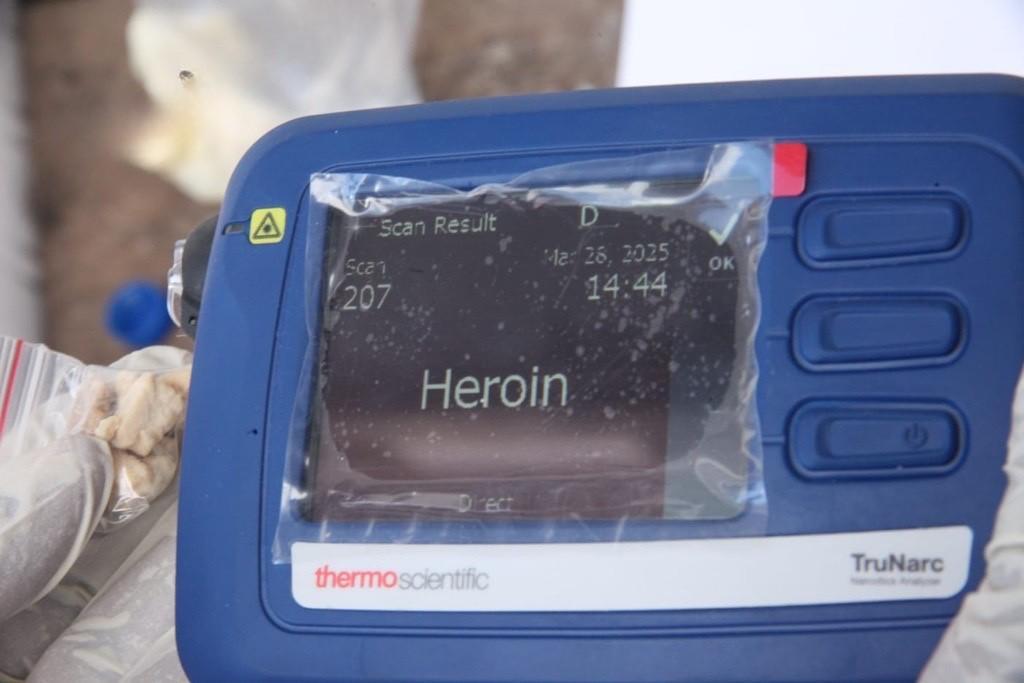Africa-Press – Mozambique. The National Criminal Investigation Service (SERNIC) and the United Nations Office on Drugs and Crime (UNODC) continue their joint work to strengthen Mozambique’s capacity to combat drug trafficking.
As part of the long-standing partnership between UNODC and SERNIC, UNODC has donated Raman devices – high-precision portable tools that allow the rapid and non-invasive identification of illicit substances – to SERNIC.
“With these RAMANs, we have been able to significantly reduce the time of analysis at the seizure site, in addition to minimizing the risk of contamination and ensuring high accuracy in the results,” says Joaquim Alfândega, director of SERNIC’s International Cooperation Department.
Alongside the RAMAN spectrometers, UNODC has equipped national authorities with computers to process and analyse the data generated by the devices. This upgrade is considered a strategic enabler for drug control operations. “Data is essential – but so is the capacity to interpret it,” says Antonio De Vivo, Head of the UNODC Office in Mozambique. “With this IT equipment, our goal is to strengthen SERNIC’s ability to identify trafficking networks and contribute to the development of evidence-based policies to combat drug trafficking in Mozambique.”
In addition to providing equipment, UNODC ensures sustained capacity development through periodic training. This support accompanies the technological upgrades at SERNIC, enabling staff to fully leverage new tools and methods. Practical training sessions are regularly conducted for forensic technicians and SERNIC agents, both in Mozambique and at the UNODC Laboratory in Vienna, Austria.
These sessions go beyond the technical aspects of identifying and analysing suspicious substances. They also focus on building the skills required to train others — a multiplier effect aimed at ensuring long-term impact. The most recent training-of-trainers session was held in late May 2025 at SERNIC’s central laboratory in Maputo.
“The objective is clear: to build an autonomous and sustainable forensic capacity,” said Antonio De Vivo. “By equipping national teams with skills and tools aligned with international standards, we are enhancing the country’s ability to combat drug-related crimes with greater technical precision and effectiveness, while also ensuring the sustainability of our technical assistance by preparing officials to transfer of know-how within institutions for years to come.”
To date, SERNIC units in 10 of Mozambique’s 11 provinces have received RAMAN devices. The investment is already showing tangible results. “In March, SERNIC identified and seized 42 kilograms of heroin and 90 kilograms of methamphetamine using the RAMAN devices provided by UNODC – a clear demonstration of how technology, combined with training, can disrupt the flow of illicit substances,” noted Joaquim Alfândega.
“This technological investment by UNODC is a strategic asset,” added Hilário Lole, spokesperson for SERNIC. “It ensures that criminal investigation units are equipped to keep pace with the evolving modus operandi of international drug trafficking.”
This equipment provision is part of UNODC’s broader strategy to strengthen Mozambique’s criminal justice response to drug trafficking, which encompasses specialized training on disrupting supply chains, data analysis and cyber investigation techniques, among other topics, bridge-building among counterparts in the Southern African region and beyond, and enhancing coordination at the national level.
UNODC’s technical assistance in the area of counternarcotics is made possible through the financial support of the United States of America, Germany and Norway. UNODC’s country programme in Mozambique is also funded by the European Union, Japan, Switzerland, Finland, Portugal and Italy.
About UNODC
Established in 1997 and with projects implemented in 150 countries, UNODC provides technical assistance to United Nations Member States in the fight against organized crime, drug trafficking and use, corruption, terrorism, as well as in strengthening criminal justice systems and access to justice.
UNODC’s cooperation in Mozambique is guided by the “Maputo Roadmap”, developed in partnership with relevant institutions and authorities and endorsed by the government of Mozambique in 2020.
For More News And Analysis About Mozambique Follow Africa-Press






